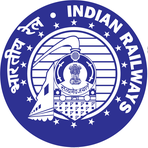A Surge in Renewable Energy and Transport Innovations in India
August 9, 2024, 9:46 am
India is witnessing a renaissance in renewable energy and transport innovations. The recent announcements from Nala Renewables and the Punjab government signal a robust commitment to sustainable energy. Meanwhile, advancements in railway safety and the growth of Akasa Air highlight the dynamic shifts in the transportation sector.
Nala Renewables has made headlines with its acquisition of an onshore wind project from OX2. This move is not just a business transaction; it’s a strategic leap into the future of energy. The project is nestled in a prime wind resource area, promising to bolster Nala’s renewable energy capacity significantly. The acquisition includes all necessary infrastructure and permits, allowing for a swift integration into Nala’s operational framework.
This acquisition is a testament to the growing trend of consolidation in the renewable energy sector. Companies are racing to secure assets that will help them thrive in a world increasingly focused on clean energy. Nala’s strategic focus on wind energy aligns with global efforts to transition away from fossil fuels. By enhancing its green energy portfolio, Nala is not just chasing profits; it’s contributing to a cleaner planet.
The economic implications are equally significant. The wind project is expected to create jobs and stimulate local investments. This is a win-win scenario: cleaner energy and economic growth go hand in hand. As Nala Renewables strengthens its position in the global market, it sets a precedent for other companies to follow suit.
In another bold move, the Punjab government is planning to establish 66 solar power plants, each with a capacity of 4 MW. This initiative is part of a broader clean energy strategy aimed at reducing reliance on traditional energy sources. The solar plants are projected to generate around 390 million units of electricity annually. That’s enough power to light up a small city.
The financial benefits are staggering. The project is expected to save approximately Rs 1.36 billion annually while attracting investments of about Rs 1.56 billion. This initiative will not only provide clean energy but also create job opportunities in the non-conventional energy sector. The Punjab government is clearly positioning itself as a leader in renewable energy.
On the transport front, Akasa Air is making waves. The airline, co-founded by Vinay Dube, aims to break into the top 30 global airlines by 2030. In just two years, Akasa has expanded its reach to 22 domestic and five international destinations. With over 11 million passengers flown and more than 900 weekly flights, Akasa is not just another airline; it’s a rising star in the aviation industry.
Backed by significant investments, Akasa has carved out a 5% market share, surpassing established competitors like SpiceJet. This rapid growth is a clear indication of the airline’s potential. As Akasa continues to expand, it’s not just about numbers; it’s about redefining air travel in India.
Meanwhile, the Indian Railways is stepping up its game with the introduction of the Kavach automatic train protection system. In response to recent tragedies, the railways are implementing new safety protocols for loco pilots. This system will be deployed across 5,000 kilometers of track and will equip 10,000 locomotives with advanced safety technology.
The Kavach system is a crucial step towards enhancing railway safety. It aims to prevent accidents caused by human error, especially during signal failures. The urgency of this initiative reflects the railways’ commitment to passenger safety. By prioritizing safety, the Indian Railways is not just protecting lives; it’s also restoring public confidence in rail travel.
Additionally, the Rapid Metro Gurgaon has reported a remarkable 10.49% surge in revenue for the first quarter of the 2024-25 financial year. This increase is attributed to an 8.75% rise in ridership, with passenger numbers reaching 1.22 million in April alone. The growth in ridership and revenue underscores the importance of efficient public transport systems in urban areas.
The success of the Rapid Metro is a clear indicator of the demand for reliable and efficient transport options. As cities grow, so does the need for effective public transport solutions. The Rapid Metro is not just a mode of transport; it’s a lifeline for commuters navigating the bustling urban landscape.
In conclusion, India is at a crossroads. The push for renewable energy and the evolution of transport systems are reshaping the landscape. Nala Renewables and the Punjab government are leading the charge in clean energy. Akasa Air and the Indian Railways are redefining travel and safety standards. Together, these developments paint a picture of a nation committed to progress. The future is bright, and it’s powered by innovation and sustainability.
Nala Renewables has made headlines with its acquisition of an onshore wind project from OX2. This move is not just a business transaction; it’s a strategic leap into the future of energy. The project is nestled in a prime wind resource area, promising to bolster Nala’s renewable energy capacity significantly. The acquisition includes all necessary infrastructure and permits, allowing for a swift integration into Nala’s operational framework.
This acquisition is a testament to the growing trend of consolidation in the renewable energy sector. Companies are racing to secure assets that will help them thrive in a world increasingly focused on clean energy. Nala’s strategic focus on wind energy aligns with global efforts to transition away from fossil fuels. By enhancing its green energy portfolio, Nala is not just chasing profits; it’s contributing to a cleaner planet.
The economic implications are equally significant. The wind project is expected to create jobs and stimulate local investments. This is a win-win scenario: cleaner energy and economic growth go hand in hand. As Nala Renewables strengthens its position in the global market, it sets a precedent for other companies to follow suit.
In another bold move, the Punjab government is planning to establish 66 solar power plants, each with a capacity of 4 MW. This initiative is part of a broader clean energy strategy aimed at reducing reliance on traditional energy sources. The solar plants are projected to generate around 390 million units of electricity annually. That’s enough power to light up a small city.
The financial benefits are staggering. The project is expected to save approximately Rs 1.36 billion annually while attracting investments of about Rs 1.56 billion. This initiative will not only provide clean energy but also create job opportunities in the non-conventional energy sector. The Punjab government is clearly positioning itself as a leader in renewable energy.
On the transport front, Akasa Air is making waves. The airline, co-founded by Vinay Dube, aims to break into the top 30 global airlines by 2030. In just two years, Akasa has expanded its reach to 22 domestic and five international destinations. With over 11 million passengers flown and more than 900 weekly flights, Akasa is not just another airline; it’s a rising star in the aviation industry.
Backed by significant investments, Akasa has carved out a 5% market share, surpassing established competitors like SpiceJet. This rapid growth is a clear indication of the airline’s potential. As Akasa continues to expand, it’s not just about numbers; it’s about redefining air travel in India.
Meanwhile, the Indian Railways is stepping up its game with the introduction of the Kavach automatic train protection system. In response to recent tragedies, the railways are implementing new safety protocols for loco pilots. This system will be deployed across 5,000 kilometers of track and will equip 10,000 locomotives with advanced safety technology.
The Kavach system is a crucial step towards enhancing railway safety. It aims to prevent accidents caused by human error, especially during signal failures. The urgency of this initiative reflects the railways’ commitment to passenger safety. By prioritizing safety, the Indian Railways is not just protecting lives; it’s also restoring public confidence in rail travel.
Additionally, the Rapid Metro Gurgaon has reported a remarkable 10.49% surge in revenue for the first quarter of the 2024-25 financial year. This increase is attributed to an 8.75% rise in ridership, with passenger numbers reaching 1.22 million in April alone. The growth in ridership and revenue underscores the importance of efficient public transport systems in urban areas.
The success of the Rapid Metro is a clear indicator of the demand for reliable and efficient transport options. As cities grow, so does the need for effective public transport solutions. The Rapid Metro is not just a mode of transport; it’s a lifeline for commuters navigating the bustling urban landscape.
In conclusion, India is at a crossroads. The push for renewable energy and the evolution of transport systems are reshaping the landscape. Nala Renewables and the Punjab government are leading the charge in clean energy. Akasa Air and the Indian Railways are redefining travel and safety standards. Together, these developments paint a picture of a nation committed to progress. The future is bright, and it’s powered by innovation and sustainability.

